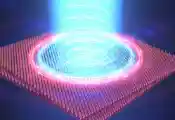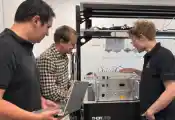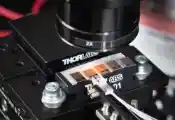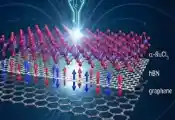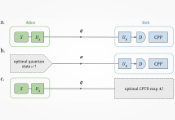Quantum Research Sciences Wins DLA Contract to Develop Product Obsolescence Prediction Tool
WEST LAFAYETTE, Ind., January 22, 2025 -- Purdue University-connected software company Quantum Research Sciences (QRS) has received a Phase I Small Business Innovation Research contract from the Defense Logistics Agency (DLA), which contracts, purchases, distributes, stores and disposes of items for the Department of Defense.
QRS will leverage artificial intelligence, machine learning and quantum computing technologies to create the Product Obsolescence Prediction (POP) tool. This tool will enhance the DLA’s supply chain management capabilities and reduce the challenges associated with obsolescence.
Headquartered in Lafayette, QRS is a Purdue Innovates client company and an affiliate company of the Purdue Quantum Science and Engineering Institute.
Challenges and risks caused by obsolescence
Ethan Krimins, chief executive officer of QRS, said the ability of the DOD to effectively defend the nation hinges on the efficient functioning of its thousands of systems, all of which are reliant on parts, materials and code.
“However, the life cycle of these components is not infinite, and any unplanned obsolescence threatens operational efficiency and force readiness,” he said. “Predicting and managing obsolescence is a complicated task. It necessitates a delicate balance between fulfilling combat requirements, budgeting, ensuring supplier stability, mitigating material failures, accommodating design alterations and monitoring system life cycles, among many other variables.”
Krimins said effective obsolescence management is fundamental to DLA’s mission and a cornerstone of a resilient and effective logistical operation.
“Managing obsolescence will streamline the procurement and upkeep of components within the supply chain, reducing operational disruptions and bolstering readiness,” he said. “This capability not only ensures the availability of needed parts but also contributes to a robust supply chain that can adeptly respond to evolving demands.”
The POP tool
Andreas Jung is chief operating officer at QRS and an associate professor of physics and astronomy in Purdue’s College of Science. He said leveraging the POP tool’s cutting-edge computing technologies will improve the DLA’s ability to manage part obsolescence.
“Combined, these technologies will provide predictive capabilities, analyze the complex web of interdependencies and automate obsolescence management processes that are, today, largely manual,” he said. “By innovating with AI/ML/QC-powered obsolescence process, DLA can also work toward its overarching objectives of supporting nuclear enterprise, force readiness and efficacy, and supply chain innovation and assurance.”

